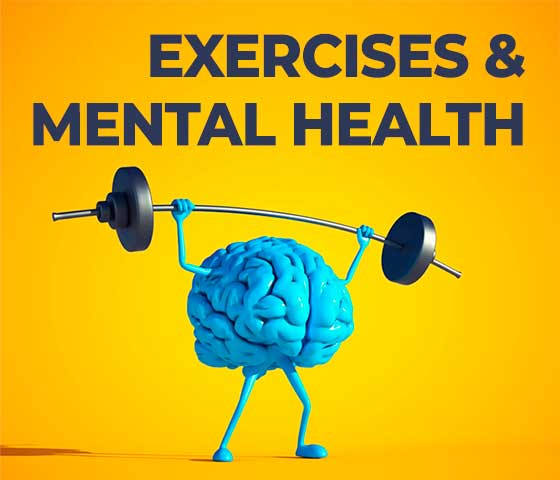Exercise has a profound impact on mental health, influencing mood, cognition, and overall well-being. Physical activity is widely recognised as evidence-based treatment and has been shown to improve mental health symptoms whilst also improving physical health. So if you aren’t looking after your body, this could contribute to affecting your mental health.

However, those experiencing mental health conditions are less likely to engage in physical activity and tend to opt for a more sedentary lifestyle.
It can be hard to get active, but a qualified exercise physiotherapy can help tailor a program suited to your lifestyle and fitness level to get you started.
At Revolve Physiotherapy, we are happy to say we have some of the most dedicated and advanced physiotherapists. They will help you with exercise routine. Also, our team work closely with with you to improve performance, achieve goals, and prevent injuries.
Here’s how exercise can benefit mental health:
Release of Endorphins: Exercise stimulates the release of endorphins, neurotransmitters in the brain that act as natural painkillers and mood elevators. This can lead to feelings of euphoria and well-being, often referred to as the “runner’s high.”
Reduction of Stress: Physical activity reduces levels of stress hormones, such as cortisol. Also, helps to alleviate symptoms of stress and anxiety. Engaging in regular exercise can act as a buffer against the negative effects of stress.
Improvement in Sleep: Regular exercise can promote better sleep quality and help alleviate insomnia. Quality sleep is crucial for maintaining good mental health and cognitive function.
Enhancement of Self-esteem: Regular physical activity can boost self-esteem and self-confidence. Meeting fitness goals and improving physical health can lead to a sense of accomplishment and empowerment.
Brain Health: Exercise has been shown to promote neuroplasticity, the brain’s ability to adapt and form new connections. This can enhance cognitive function, memory, and learning abilities.
Long-term Mental Health Benefits: Regular exercise is associated with a reduced risk of developing mental health conditions. For example, depression and anxiety over the long term.
It’s important to note that while exercise can be beneficial for mental health, it’s not a replacement for professional treatment. Individuals experiencing severe mental health issues should seek support from a qualified mental health professional. Additionally, it’s essential to find types of exercise that you enjoy and can sustain over time to reap the mental health benefits.

In summary, exercise is beneficial for both mental health and physical rehabilitation. Physiotherapy utilizes exercise as a primary tool to restore, maintain, and improve physical function, while also addressing the psychological well-being of individuals undergoing rehabilitation.
Physiotherapy utilizes exercise as a fundamental component in the rehabilitation and management of various physical health conditions, injuries, and disabilities. Reach out to Revolve Physiotherapy in Milton at (905) 864.8181. Your well-being is our utmost priority.
